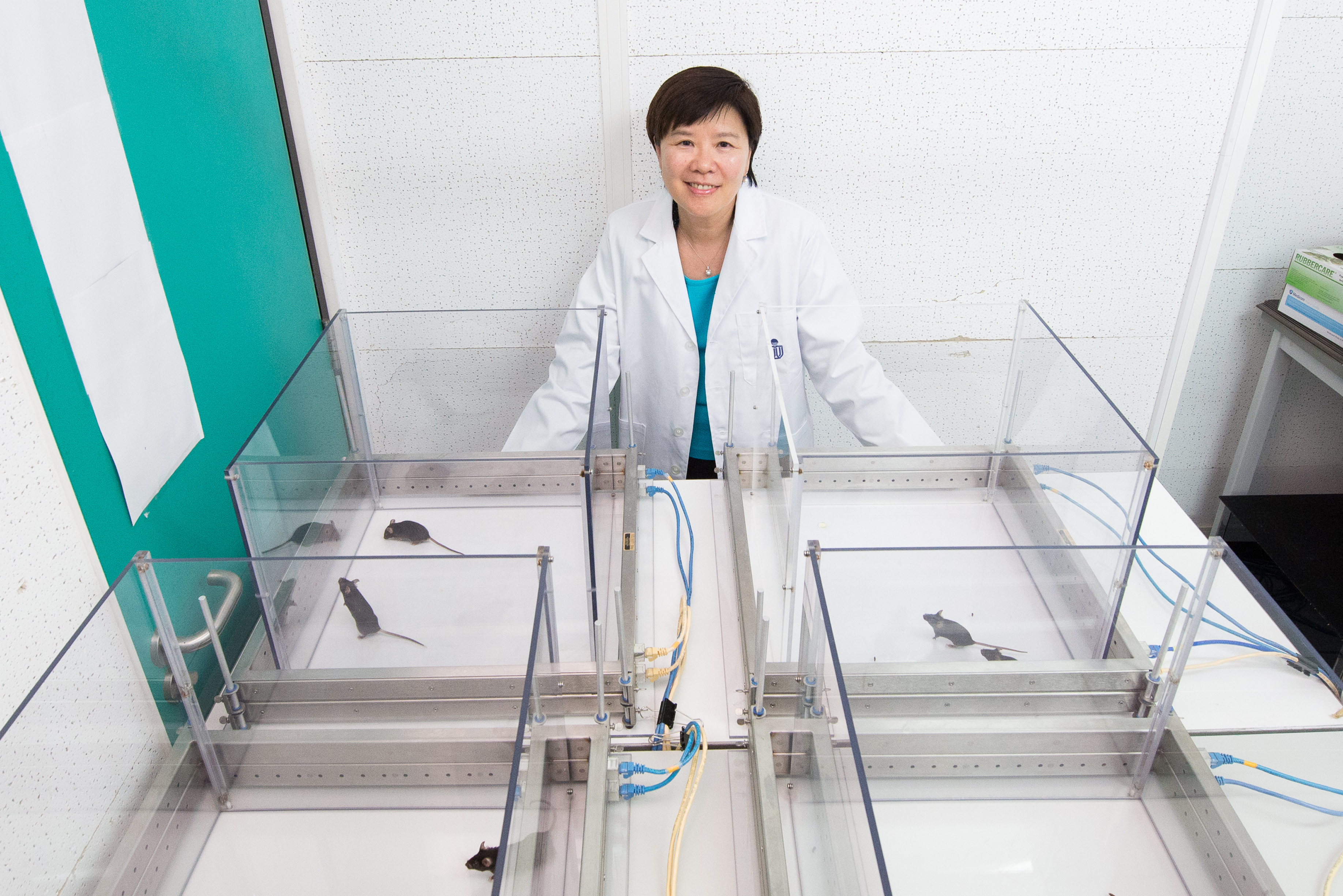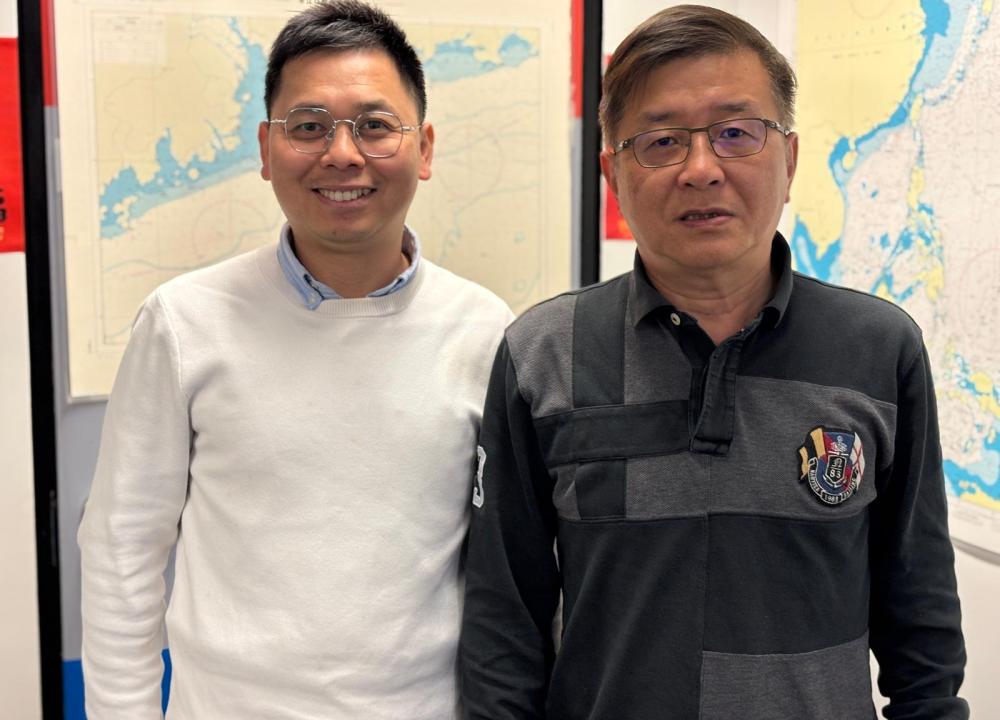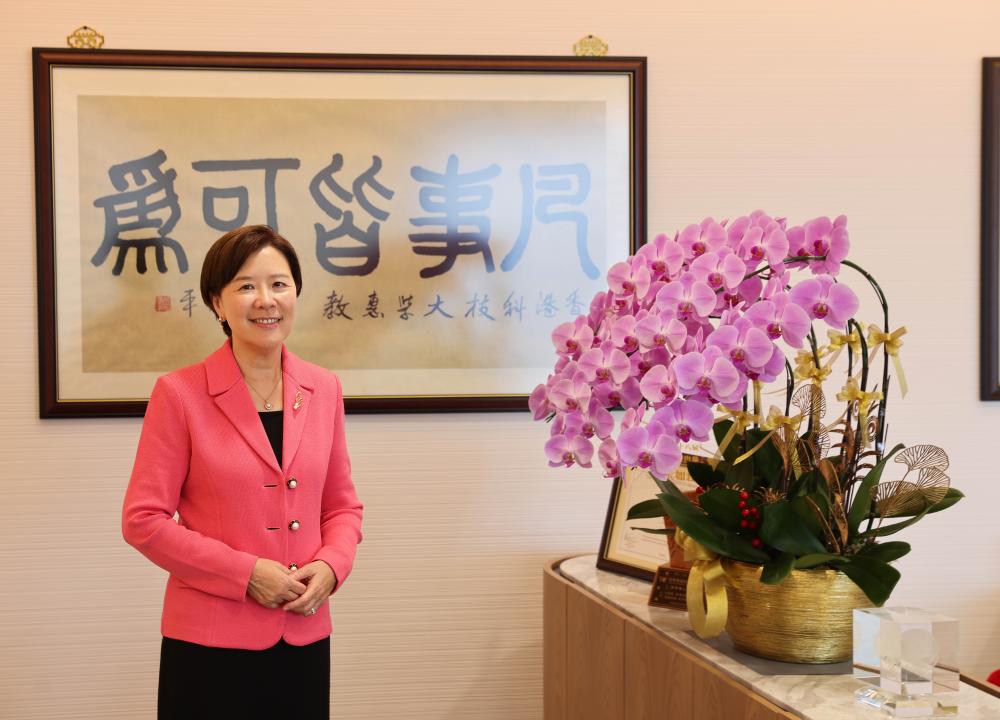Breakthrough Discoveries at HKUST Offer New Hope for Treatment of Alzheimer's Disease
A research team led by scientists from the Hong Kong University of Science and Technology (HKUST) has discovered that a protein found in the human body could be potentially developed as an effective treatment for Alzheimer’s disease (AD).
The team, led by Prof Nancy Ip, Dean of Science, Director of the State Key Laboratory of Molecular Neuroscience and The Morningside Professor of Life Science at HKUST, in collaboration with Prof Eddy Liew from the University of Glasgow and Prof Baorong Zhang from Zhejiang University, has found that the protein interleukin-33 (IL-33) ameliorates cognitive decline and Alzheimer's disease-like pathology. The groundbreaking study was conducted at HKUST and the results have just been published in the prestigious scientific journal, Proceedings of the National Academy of Sciences USA (PNAS).
AD is a progressive and highly debilitating brain disease, which is currently irreversible and incurable. Patients suffer from cognitive deficits such as impaired memory, reasoning, judgement and movement. Pathological hallmarks include the accumulation of beta-amyloid (Aβ) plaques and neurofibrillary tangles in the brain.
IL-33 is a protein made by the human body that modulates immune functions. The team at HKUST focused their attention on IL-33 due to its compromised function in individuals with mild cognitive impairment who are at high risk of developing AD. They found that injection of IL-33 in APP/PS1 mice (transgenic mice with AD-like pathologies) resulted in remarkable and rapid recovery of cognitive functions. Within a week, the neuronal communication defects and memory loss in APP/PS1 mice were reversed. Also significantly, the team found that IL-33 injection for 2 consecutive days was sufficient to reduce the levels of Aβ protein and, in turn, decrease the deposits of amyloid plaque in the brains of these mice.
Defects in the removal of Aβ protein in the brain are believed to be one of the major causes underlying AD. The team at HKUST showed that the presence of IL-33 mobilized the immune cells of the brain, the microglia, to the amyloid plaques and promoted the clearance of Aβ protein. IL-33 also triggered changes in the microglia to reduce overall inflammation in the brain. Inflammation contributes to and drives the pathology of the disease.
“These exciting findings bring us one step closer to understanding the pathological process of this complex, multi-factorial disease and provide a new avenue for developing AD treatments,” said Prof Ip. “The next step will be to translate the findings from the mouse study into clinical treatments for humans.”
Globally, AD affects 46.8 million individuals and the number of cases is projected to reach 131.5 million by 2050. Mainly affecting individuals over the age of 65, it is also one of the leading causes of mortality in the elderly. AD is an enormous social and economic burden to patients and their care-givers. It is also an impending catastrophe for healthcare facilities and public resources in many countries since the prevalence of AD is increasing rapidly due to aging populations worldwide.
This project is generously supported by the University Grants Committee, the Research Grants Council, the Innovation and Technology Commission, the S.H. Ho Foundation, and the National Basic Research Program of China (973 Program).
Prof Nancy Ip joined HKUST in 1993 and became Chair Professor in 2005. In February 2011, she was appointed Dean of Science. Prof Ip’s outstanding scientific accomplishments have won her numerous awards and honors including the Croucher Foundation Senior Research Fellowship, the National Natural Science Awards, the L’OREAL-UNESCO ‘For Women in Science’ Award, the Scientific and Technological Progress Prize of Ho Leung Ho Lee Foundation, and the honor of Knight of l’Ordre National du Mérite. She was elected to the Chinese Academy of Sciences, the US National Academy of Sciences, the World Academy of Sciences, and most recently, the American Academy of Arts and Sciences.
For media enquiries, please contact:












